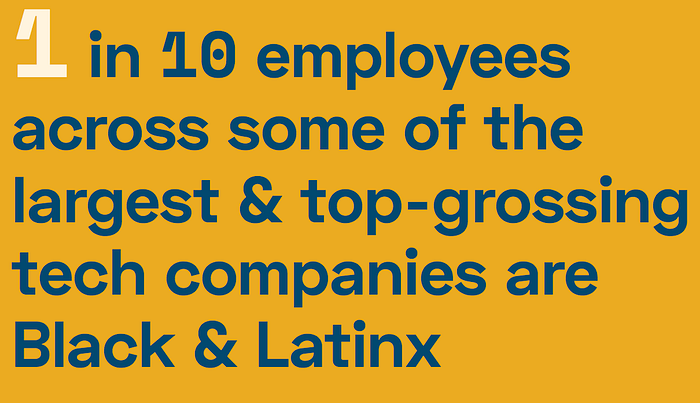I come from generations of agricultural farmers in rural Mexico. At six months old, I immigrated to this country, passed off as my aunt’s child at the border. I grew up in a poor and blighted area of a small desert city in the Coachella Valley, a place where drive-by shootings were common. My parents worked round-the-clock in country clubs serving the rich guests, then spent their “off-time” landscaping desert gardens and cleaning homes to provide for three growing boys. I’ve worked a series of odd jobs since I could remember (I can tile your home, change a toilet, and install a water drip system). I was the first person in my family to graduate from high school, then to go on to college, and now to work a white-collar job.
I thought a college education was the only way to build generational wealth for my family and community

I’m one of the millions of people of color in the U.S. who share this journey. I had the blessing of going to Stanford on need-based financial aid. While I worked tirelessly to do everything “right” to secure a job — I was involved in several students groups, worked in DC over the summer, picked up a few fellowships along the way — I knew the majority of my classmates came from wealth. Their parents went to top Ivy league schools, ran Fortune 500 companies, and took family ski trips during winter.

While I was at Stanford, I had no idea that my school sat in the middle of a tech boom. The proliferation of startups up and down the Bay would eventually contribute to my classmates’ own wealth, spurred by equity and IPO’s, but a career in tech wasn’t something that registered for me. While some of my classmates earned starting salaries of $80,000+, I was content to make $22,000 my first year out of college, and my parents were proud that I went to work in a suit every day.
The Leaky Tech Pipeline is leaving communities of color without wealth generating opportunities
The technology industry is a $1.4 trillion industry and contributes to 10.4 million jobs in the U.S. These are well paying jobs and and high profile IPOs that are creating the next generation of millionaires, yet so many of us — particularly people of color, are shut out.
The fast pace of technology innovation is leaving women and people of color behind, as early as elementary school. A combination of systemic, institutional, and psychological barriers contribute to “leaks” throughout the tech pipeline. Students of color lack access during CS classes in high school. As you move down the pipeline, only 20% of Black and Latinx students earn Bachelor’s Degrees in CS. Further along, you see an even lower percentage of women and people of color in tech roles or receiving only 1% of venture capital funding. This is the tip of the iceberg of a historic, complex and nuanced problem.

Five years into my non-profit career, I found out that several of my classmates were making six-figure salaries while I was still making less than $40,000 per year (although this was still higher than my parents’ combined income). I’m sure I walked by famous founders while I was an undergrad — or maybe even stayed in the same room — of people who built tech empires from their Stanford dorms.
I didn’t understand how to build wealth, or even how to obtain it. I was just trying to stay above water, balancing academics, dorm life, internships, and part-time work, all while feeling major imposter syndrome.
I chose to work in tech access rather than the tech industry because I wanted to create economic opportunity, despite only successfully raising 1% of $12.5M in grants solicited
In 2015, I co-led the launch of the LA Tech Talent Pipeline program at the Los Angeles Area Chamber of Commerce. The program ramped up to connect sixty of LA’s technology companies to 4,000 talented community college students (low-income, first generation, students of color) majoring in tech-related majors like software, IT, or UX/design. These students had the skills and the grit but lacked the access to tech networks.
One day, I calculated how much funding our program had solicited and secured after receiving another “No” from a funder. Over the course of 1.5 years, I had applied to $12.5M in funding and only secured about 1%. I spent 50% of my time writing, jumping on calls, taking meetings, and making pitches for 1% of funding. In an industry where billions of dollars are managed by foundations of different sizes, I could not understand how little funds actually were being awarded to organizations like ours.
So yes, I went to Stanford but wasn’t exposed to CS classes or even operational roles at tech companies. I didn’t found a startup or even join one. Not because I couldn’t, but because I didn’t understand how or why. So I thought I would help other students like me get the jobs that I wasn’t exposed to. But even, after I realized there was a whole other world open to us that could help build generational wealth for our family and communities, I was still facing barriers.
This is the story of what systemic exclusion looks like, since before I was born.
Nobody wanted or tried to keep me out (which wasn’t true of my dad or grandparent’s generation); in fact, everyone was super supportive of whatever I *chose* to pursue since my elementary school days. But growing up first-gen in the Inland Empire, you don’t dream of becoming the next Mark Zuckerberg or even a tech founder of a small startup.
You don’t become what you don’t see.
We’re funding cross-sector collaborations that seek to dismantle systemic exclusion from the technology industry: #TechDoneRight
That’s what brought me to the Kapor Center. As a Program Lead, I’m privileged to take my lived experiences to inform and shape the development of our Tech Done Right Challenge, which seeks to unlock financial resources to spur more bold solutions that foster inclusive tech ecosystems nationally.
My time is focused on learning about the experiences of other entrepreneurs who are launching programs to help underrepresented women and people of color land a job in tech or launch tech startups. Ultimately, these solutions will help spur generational wealth for these communities.
Next week, we’ll be formally announcing a $1M opportunity to galvanize those working on the frontlines building inclusive tech ecosystems. The Tech Done Right Challenge will identify these trailblazers, giving them the space, time, and resources to collaborate in new ways with startups, tech companies, city governments, and funders to tackle the systemic exclusion facing communities of color breaking into tech.
Stay tuned for our announcement coming soon! I couldn’t be more excited.

